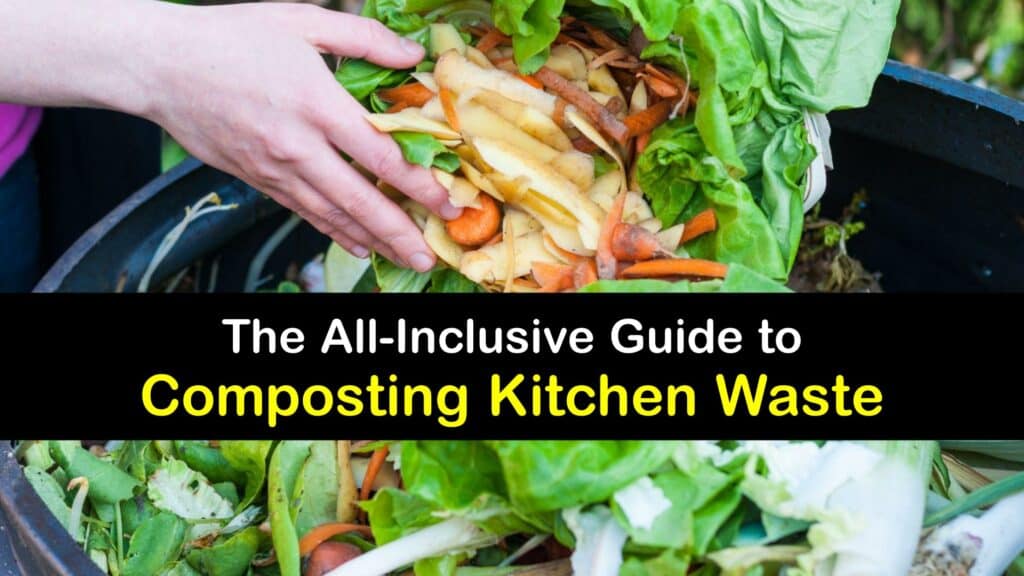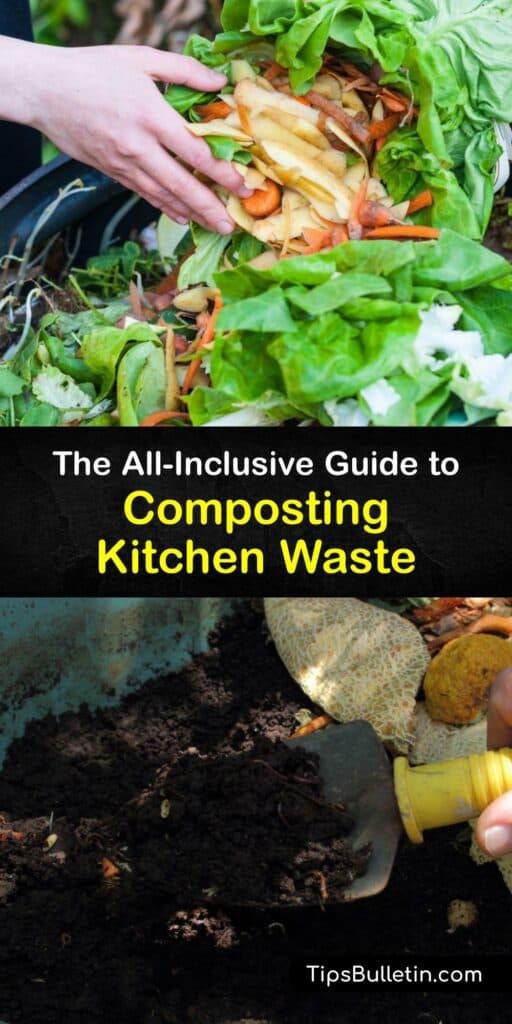Whether you want to work on your waste footprint or hope to make organic fertilizer to feed your garden, learning how to make compost from kitchen waste opens new opportunities. Composting kitchen waste aids in waste management and is simple to set up.
Several composting ideas are available, from worm bins and composting machines for small spaces and rapid composting to larger-scale systems like compost heaps and trenches. Anyone can try their hand at composting, regardless of their room or budget.
Kitchen scraps make up the green part of compost, which comprises wet nitrogen-rich materials such as fruit, veggies, and fresh grass clippings. The green matter is mixed in a 1:3 ratio with brown or dry materials to make compost. Can you compost kitchen waste? The answer is yes. Many common food items can be composted. Setting up a compost system for your home offers several benefits.

Fantastic Tips for Composting Kitchen Waste
If you’ve ever thought about how to make compost from kitchen waste, you’re not alone. Composting kitchen waste makes a lot of sense, from repurposing food waste and saving landfill space to upcycling scraps to create nutrient-dense compost.
The answer to can you compost kitchen waste is yes, and several composting options exist to fit every space and budget. You can compost shrimp shells, avocado pits, and all types of kitchen waste.
Can You Compost Kitchen Waste?
If you’ve questioned is kitchen waste good for compost, you’re not alone. Fortunately, a large portion of food waste may be added to compost, no matter what composting techniques you use, though some items are not appropriate. Knowing if you can put kitchen waste in compost opens opportunities to reuse your kitchen scraps to make something useful, reducing food waste.

Food Scraps Suitable for Home Composting
Much of the waste produced in kitchens each year is organic matter, meaning a good chunk of it is ideal for use in the composting process. Use crushed egg shells for your tomato plants or add them to the compost bin.
Kitchen scraps are generally considered green materials; they have a high nitrogen content and are half of the composting equation. Combine green materials with brown matter to create finished compost for a balanced product. Learning what to put in a compost tumbler helps your items degrade and produce compost more quickly.
These compost material examples are perfect for including in your compost bin, compost pile, or compost heap. The green portion of your compost pile generally includes wet waste such as the foods above and grass clippings. Coffee grounds are good for grass and garden soil whether you include them in compost or add them as.
Note that eggshells aren’t the only compostable “egg” item. The way to compost an egg carton (made of cardboard) is to add it to the brown materials after breaking it into smaller pieces.
Reusing organic waste for compost to enrich your garden soil aids in waste management. Compost makes wonderful natural onion fertilizer as well as benefitting other veggies and even flowers in your yard.
Kitchen Waste to Keep Out of the Composting Bin
Some items are not a good fit for composting, whether they degrade too slowly, produce a horrible stench, or attract pests. Check out these items (among others) that you are not to put in a compost bin so you don’t attract backyard pests or become overwhelmed with an unpleasant odor.
Adding these items to your compost slows the entire system and hinders the process of composting appropriate items. The best way to compost food waste is not to include these things.
Brown Material to Compost
Brown compost materials make up three-quarters of your compost pile. To make finished compost, these compostables are mixed with your green matter in a 3:1 ratio. Composting leaves and other brown matter that are just laying around the yard is easy.
Brown matter comprises dry waste. When cleaning your yard, save dried leaves and brown materials for bin, heap, or trench composting. There are easy ways to compost cardboard, as well. You can also compost news paper and junk mail as long as the paper is not glossy.
How to Make Compost from Kitchen Waste
There are four primary ways to make compost, and each has its own benefits and challenges. The space available to set up and the amount of waste for composting play a significant role in selecting the best composting method for your home.
Trench composting requires ample outdoor space to dig a hole or ditch to bury your waste. Over an extended period, usually a year or two, the compost materials break down, and plants are planted directly into the trench. To have maggots in your compost pile is fine as they help the decomposition process.
A worm bin uses vermicomposting, or worms, to break down the materials to produce compost. Vermicomposting is compact and suitable for smaller spaces. Read on to discover ways of making a worm bed to benefit your compost pile.
A compost tumbler only occupies a small outdoor space and could be set on a patio or balcony. Turning the compost every few days ensures breakdown occurs. A compost bin is larger than a tumbler and demands hand turning.
Adding manure to your outdoor compost pile is ideal. Composting sheep manure or chicken pellets adds nitrogen to the heap and makes your compost richer.
Using a Kitchen Waste Composting Machine
Compost machines simplify indoor composting and use electricity to dry, grind, and cool waste. While conventional composting methods take months or even years, a composting machine slashes these times.
Composting machines are compact and come in many sizes to fit your indoor space. The finished compost produced from the device is organic fertilizer for houseplants or your garden.
Composting is straightforward and produces valuable fertilizer for indoor plants or a home garden. By combining green and brown materials, homeowners craft a balanced compost that decomposes correctly. Reduce food waste and keep unnecessary organic matter out of landfills by composting.

If you loved this article on how to make compost from kitchen waste, please share these brilliant tips for composting kitchen waste with your friends and family on Pinterest and Facebook.